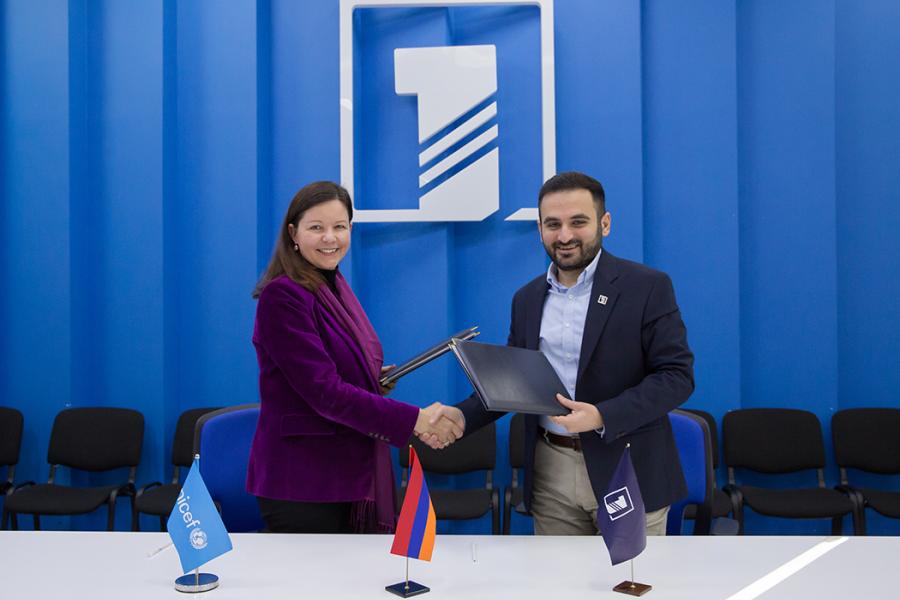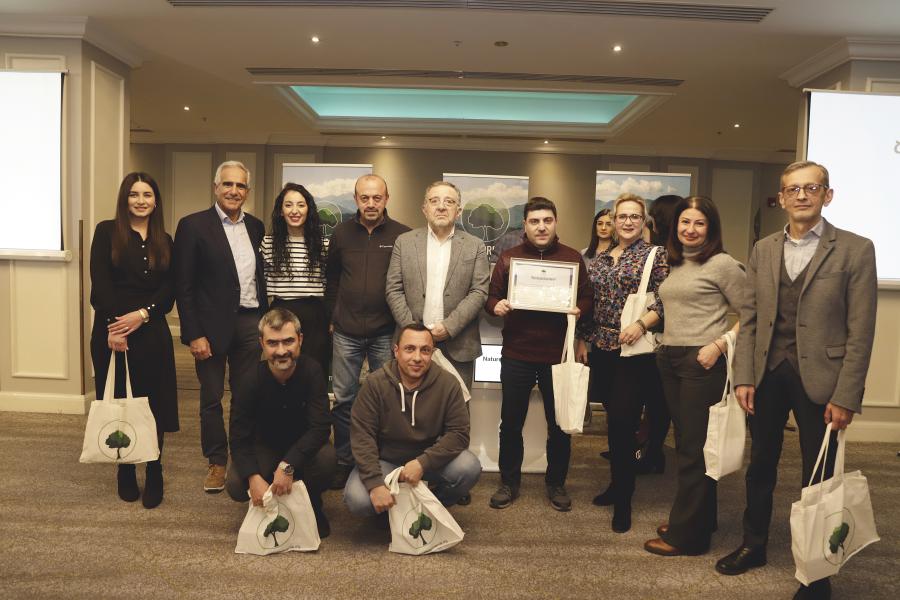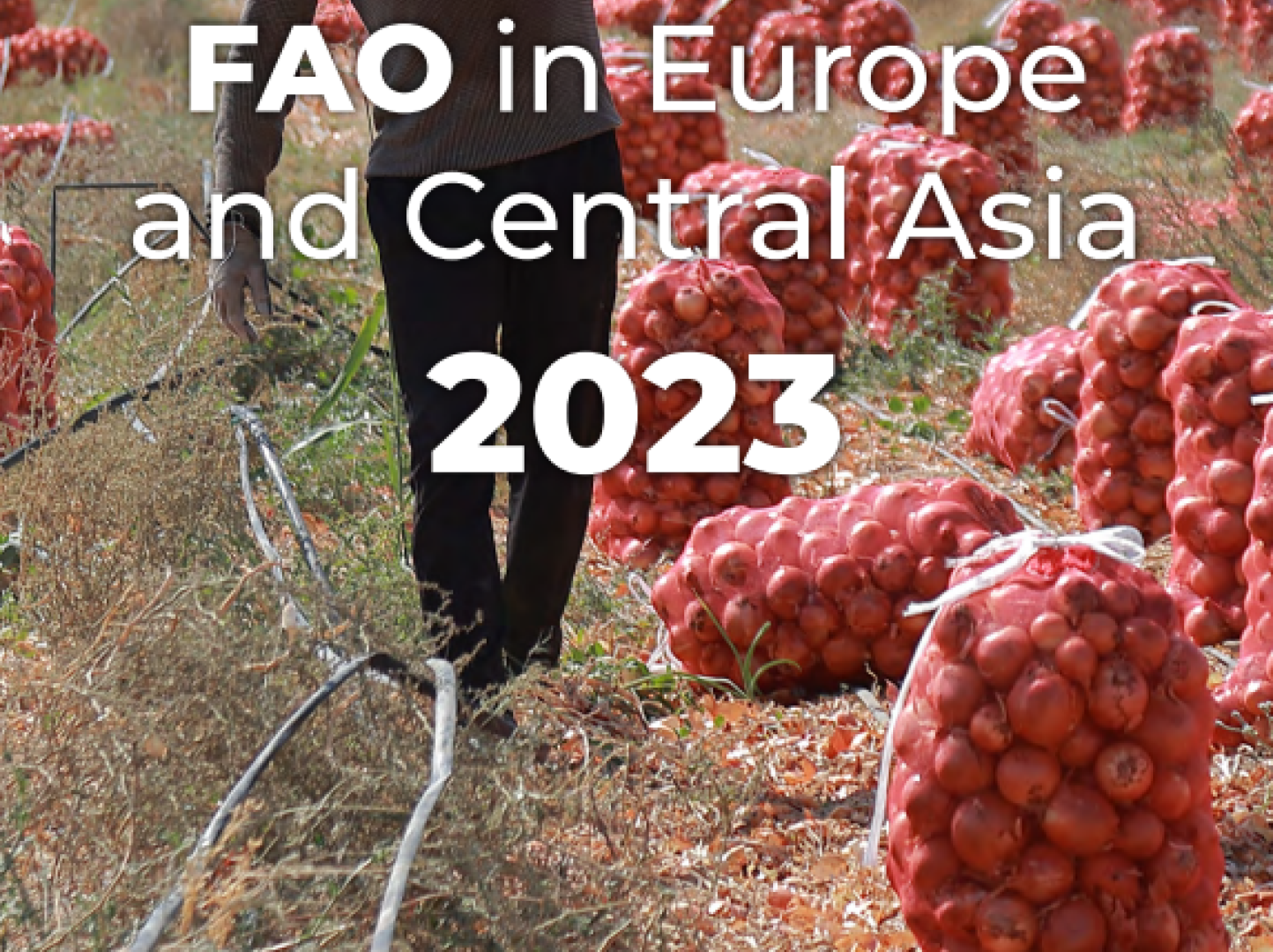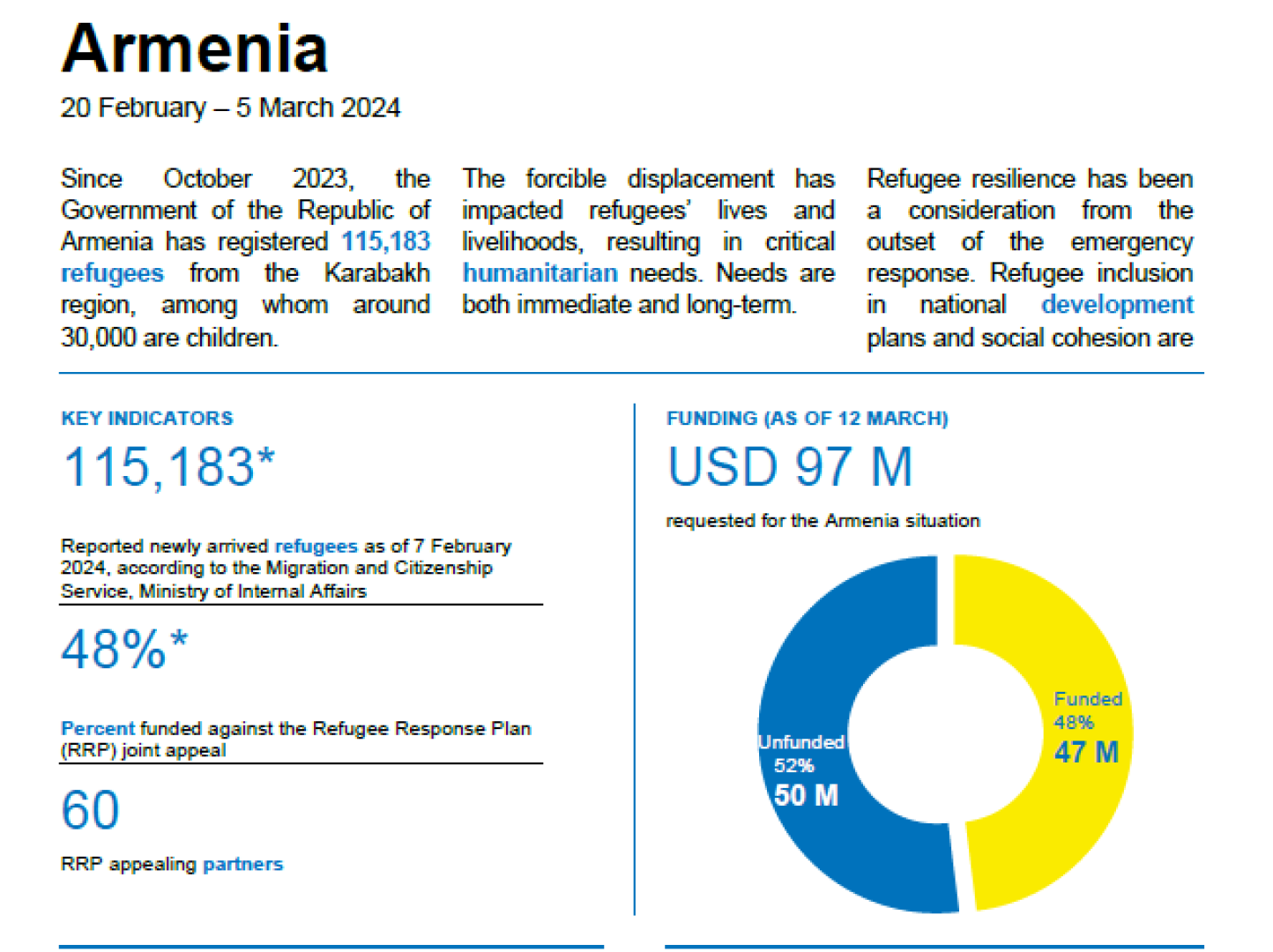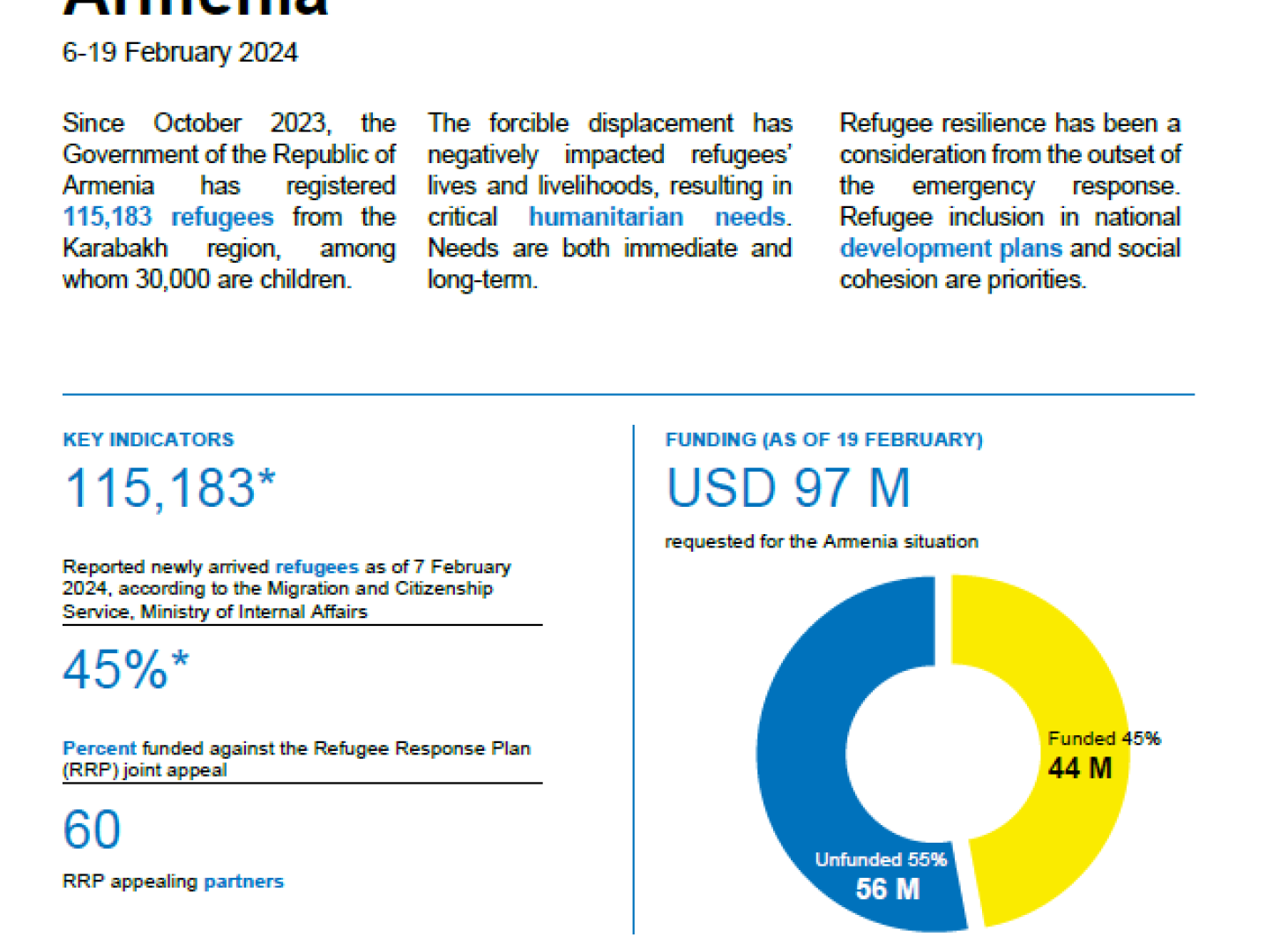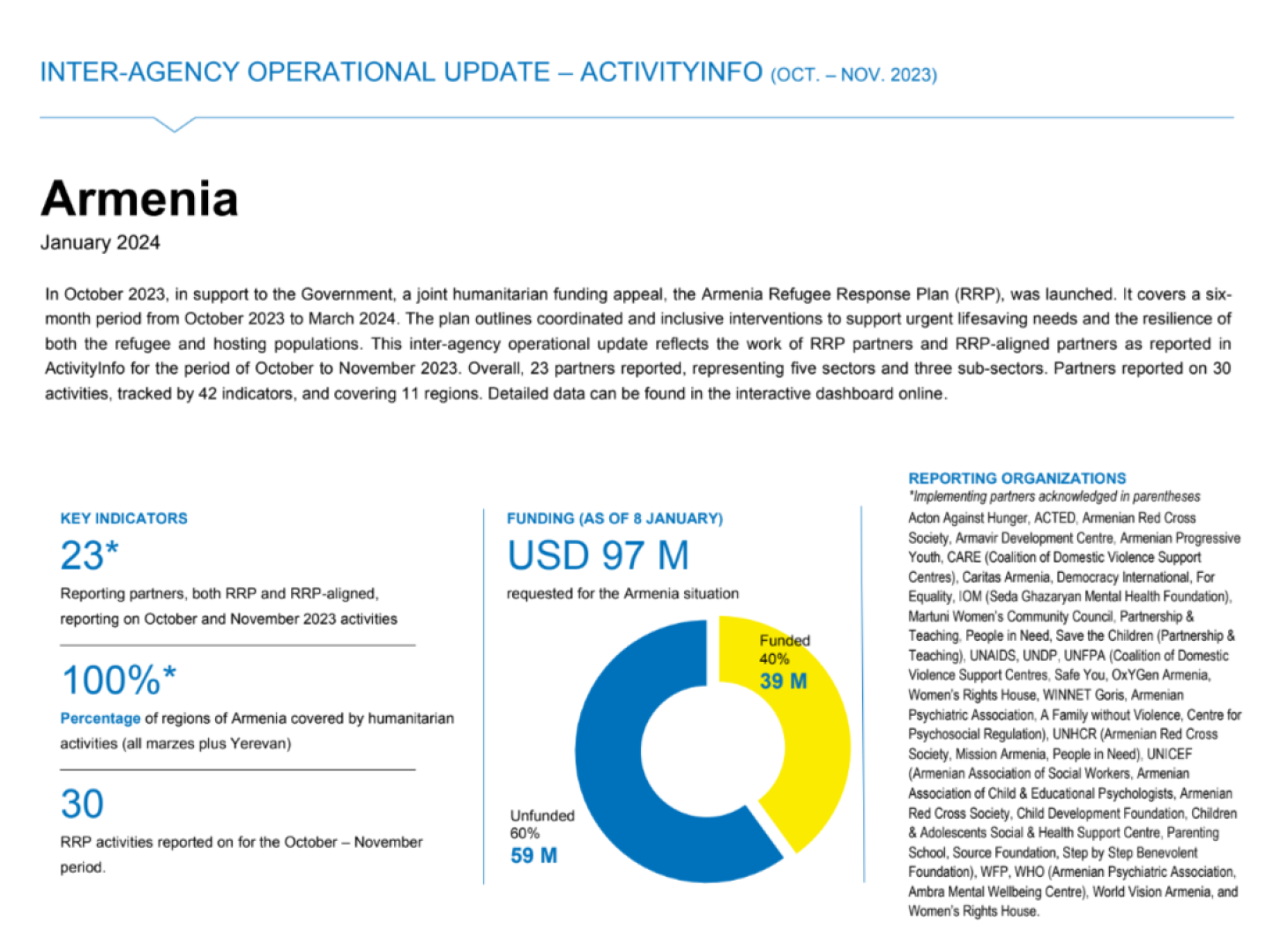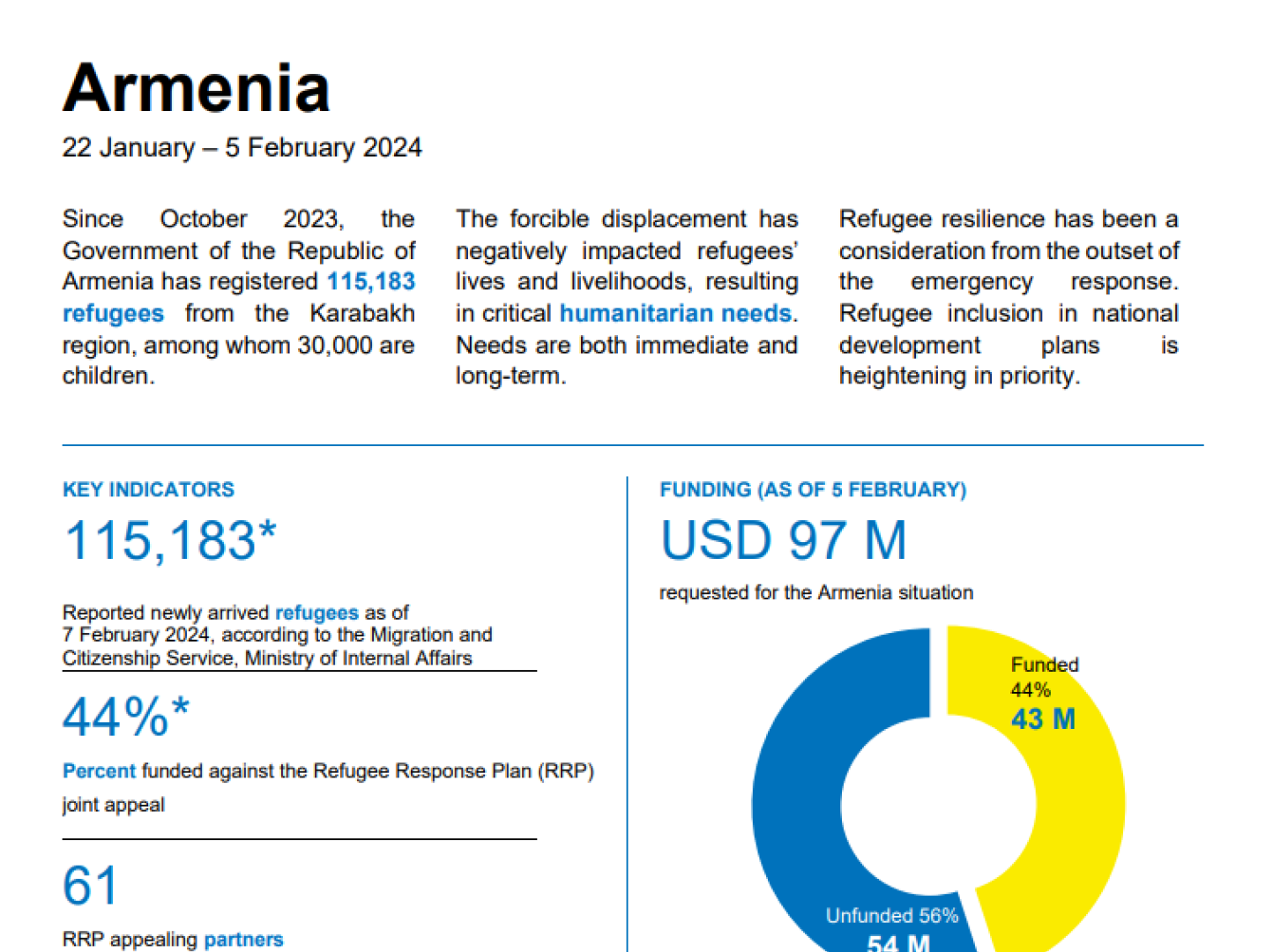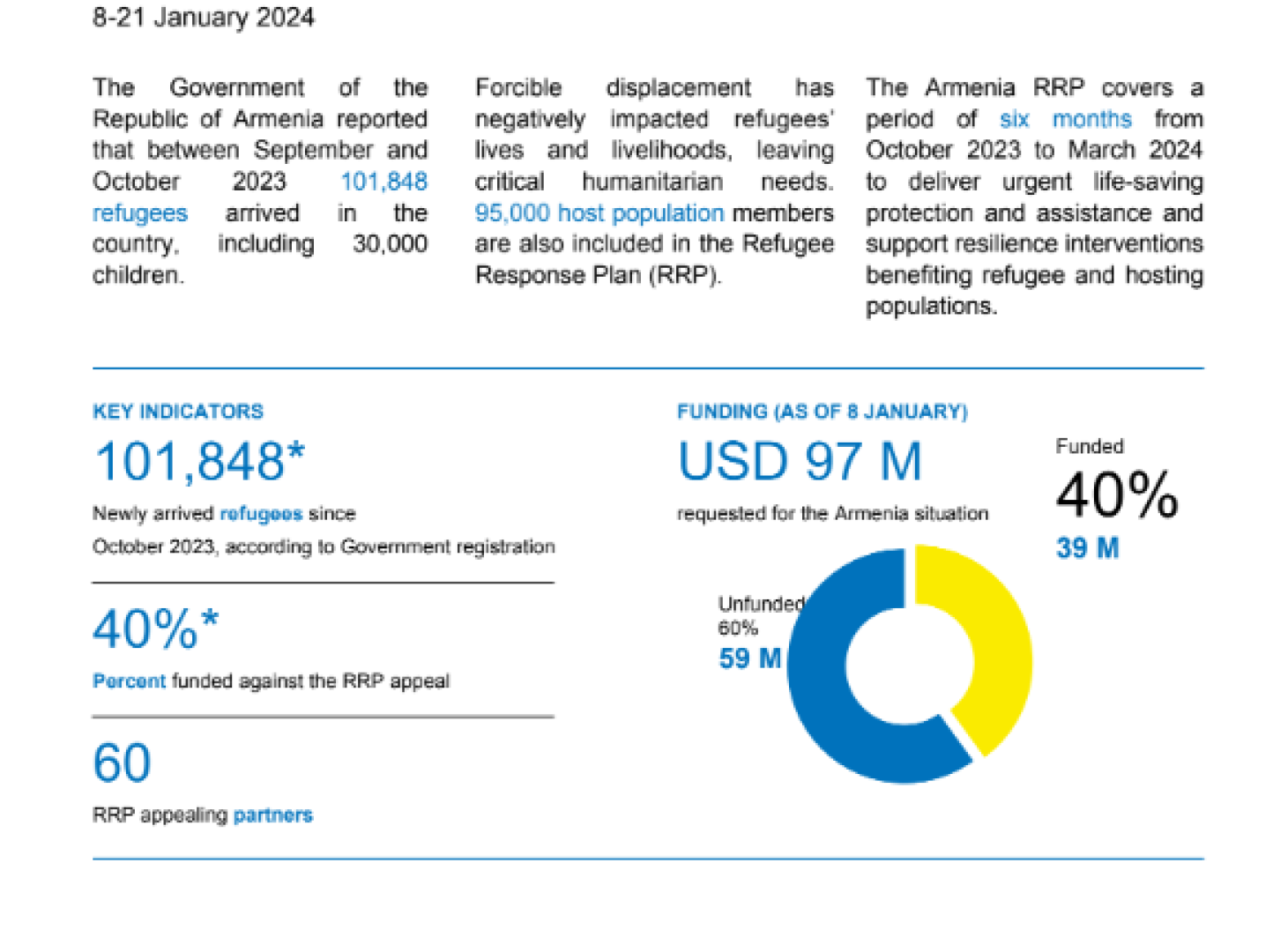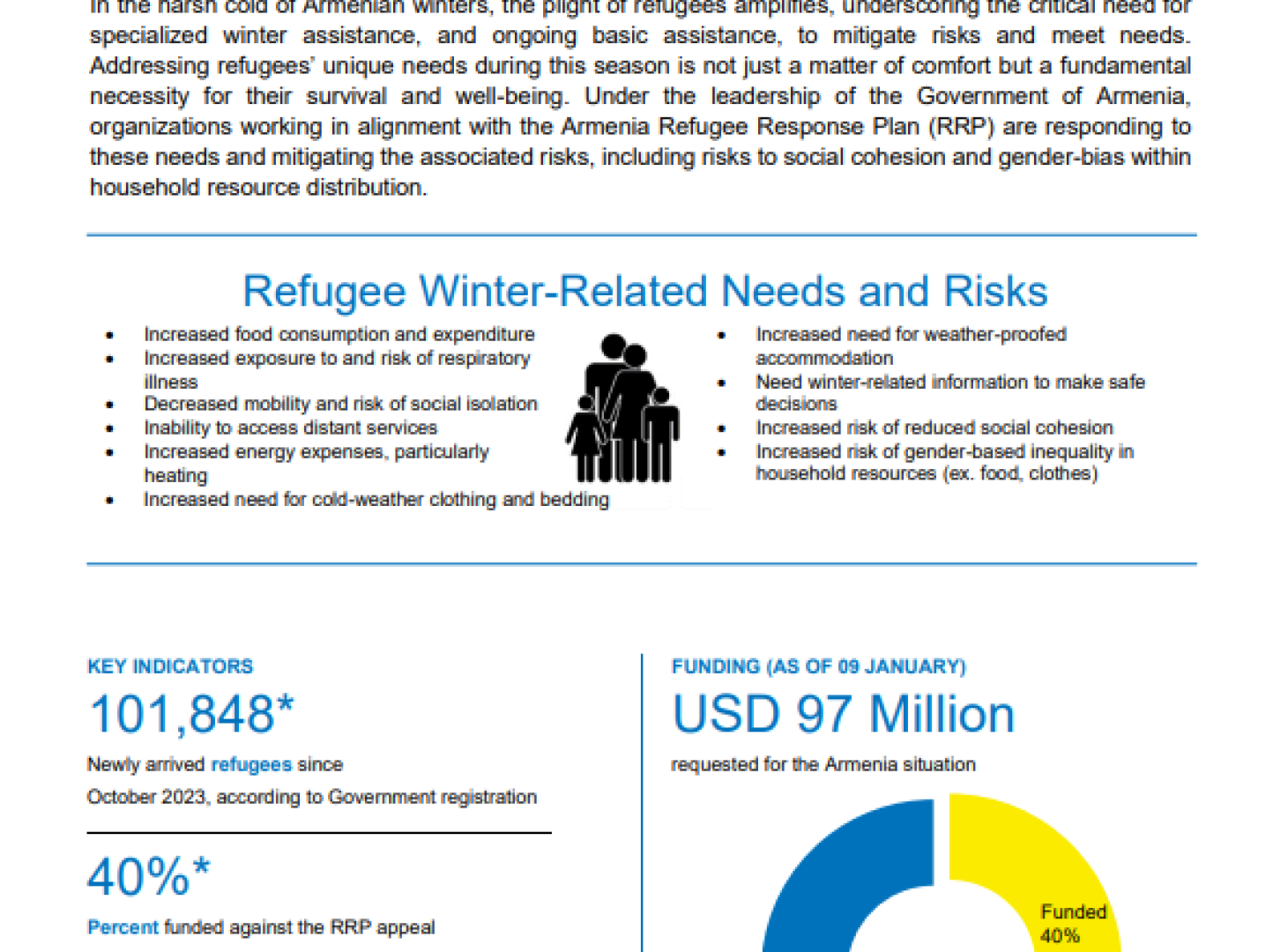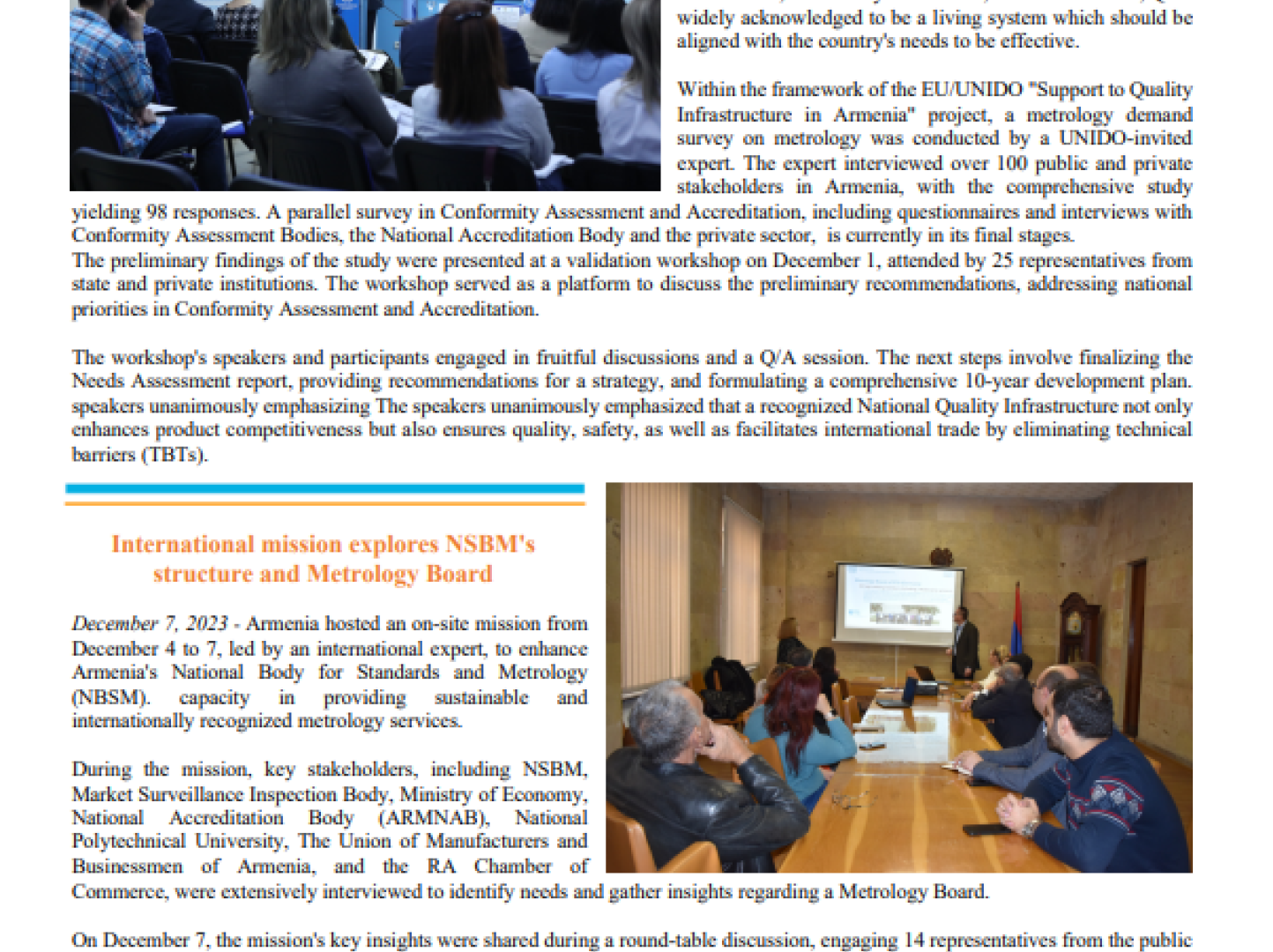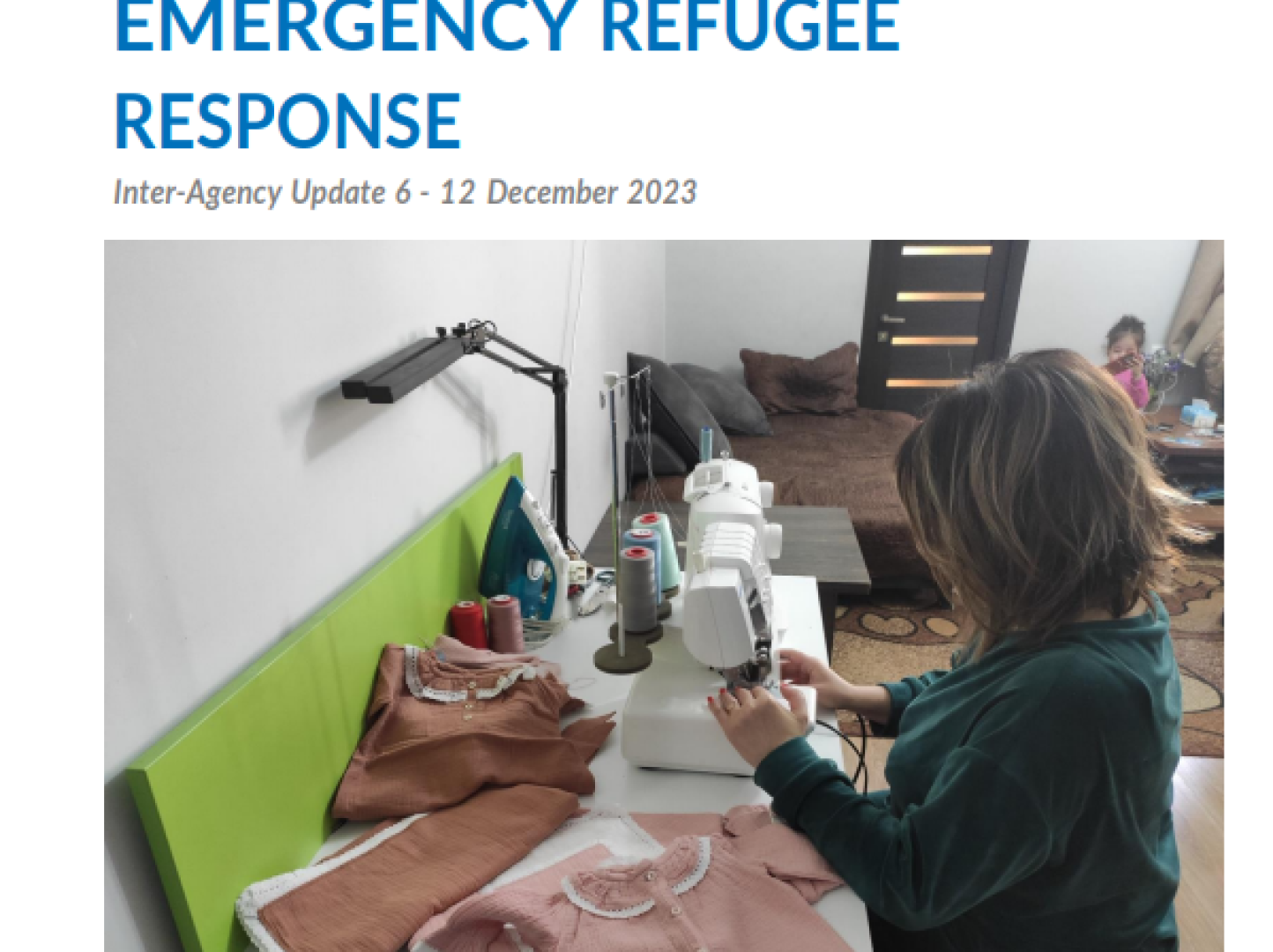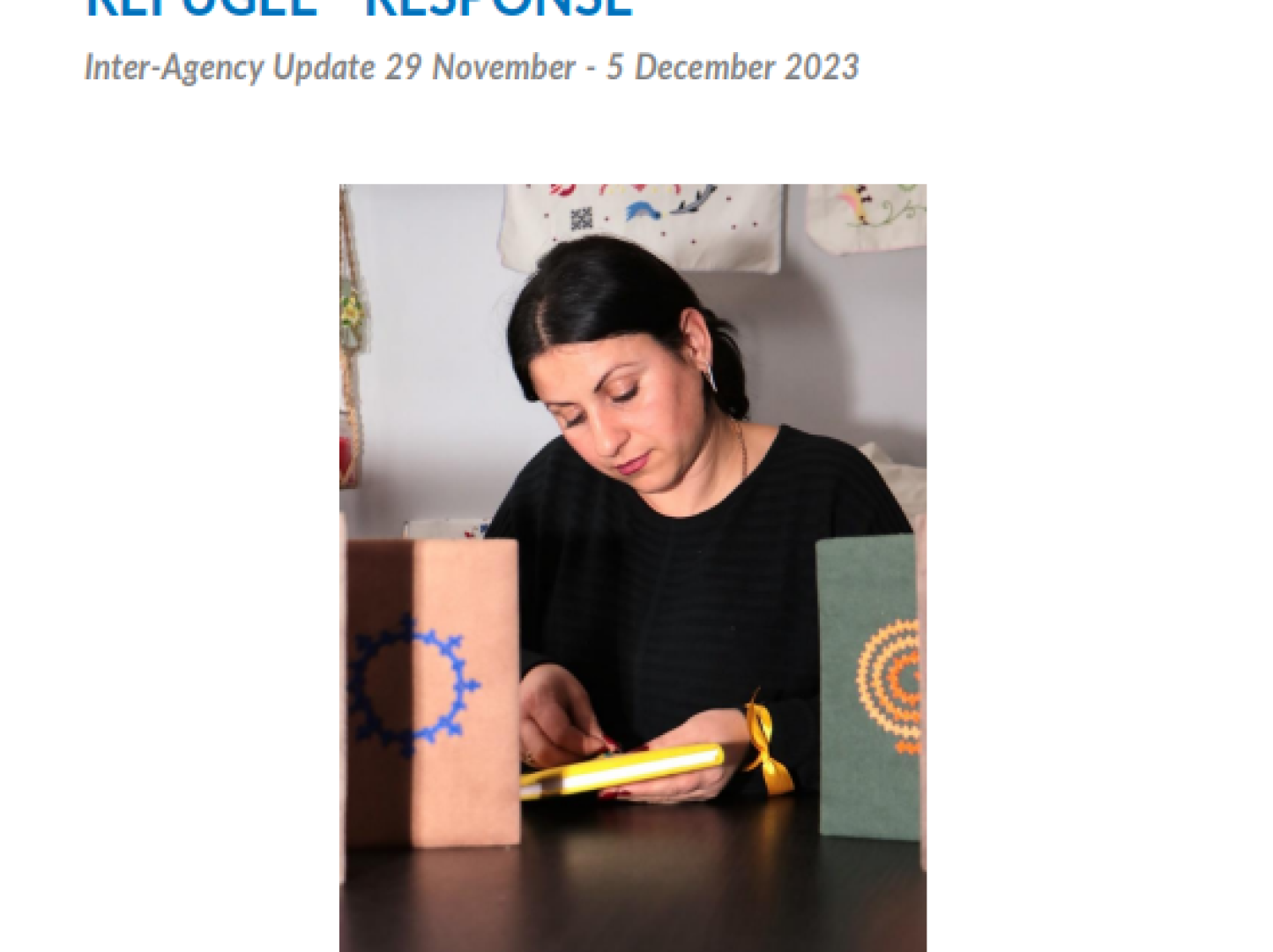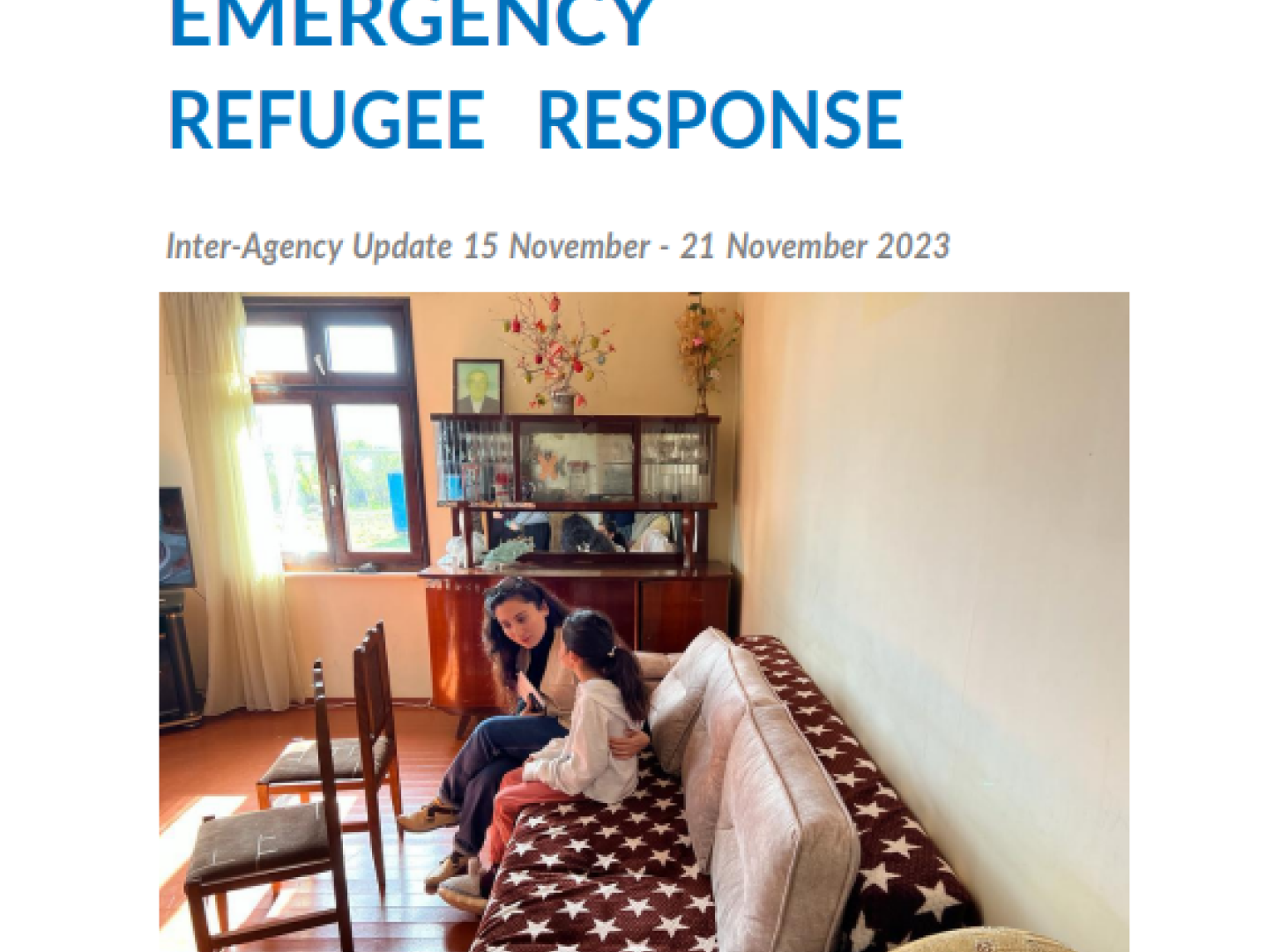Latest
Story
27 March 2024
Technical Training Workshop focusing on SDG 2.1 target was held
Learn more
Press Release
20 March 2024
Call from 100+ Pantheon of Global Leaders for Urgent Agreement on Governments to Reach Ambitious & Equitable International Deal to Prepare for and Prevent Future Pandemics
Learn more
Speech
08 March 2024
The UN Secretary-General's message on International Women's Day
Learn more
Latest
The Sustainable Development Goals in Armenia
The Sustainable Development Goals are a global call to action to end poverty, protect the earth’s environment and climate, and ensure that people everywhere can enjoy peace and prosperity. These are the goals the UN is working on in Armenia:
Video
24 January 2024
Understanding the links between Food Insecurity and Poverty in Armenia: Insights from the World Food Programme
Over the past four years, Armenia has experienced a 12 percent rise in food insecurity levels. This revelation stems from the study conducted by the United Nations World Food Programme in 2022. The findings underscored a clear correlation between poverty and food insecurity within the nation.
Watch the video to learn more about the link between food insecurity and poverty, as well as the steps taken by WFP to address these challenges and support the government.
1 of 5
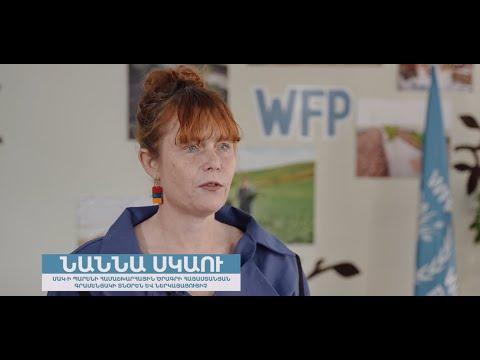
1 of 5

Story
05 March 2024
The Armenian State Symphony Orchestra donates to UNICEF for Armenia refugee response
The Armenian State Symphony Orchestra announced today a donation of US$ 12,000 to UNICEF Armenia in support of its humanitarian work for refugee children. Led by UNICEF Armenia Ambassador Sergey Smbatyan, the Armenian State Symphony Orchestra raised funds for UNICEF through seven concerts from November to December 2023.Through this contribution, refugee children with disabilities will benefit from multipurpose pharmacy vouchers. Each voucher, valued at 25,000 AMD, will allow families to choose and purchase the essential pharmaceutical items that their children require. This approach not only ensures flexibility but also respects the unique needs of each child, allowing families to make decisions based on their specific healthcare and rehabilitation priorities.Mr. Smbatyan expressed the urgency of addressing the immediate needs of refugee children, stating,"While we consistently advocate for shaping a brighter future for children, the current reality demands our immediate attention to their present. Our support is particularly vital for the most vulnerable refugee children, who, having overcome numerous challenges, now require the care and warmth of each and every one of us."UNICEF has been providing support to refugees arriving in Armenia since day one, including much needed mental health and psychosocial support, medical supplies and equipment, social protection and child protection services, and much more. Ahead of winter season, funded by the UN’s Central Emergency Response Fund and European Investment Bank, UNICEF, in cooperation with the RA Ministry of Labor and Social Affairs and Armenian Progressive Youth NGO, started to provide 25,000 AMD clothing vouchers to all refugee children aged 0-9 (inclusive), as well as to all refugee children with disabilities. In addition to clothing vouchers, all refugee children with disabilities will now also benefit from pharmacy vouchers, addressing not only their essential clothing needs but also facilitating access to necessary medications and healthcare supplies."UNICEF extends its heartfelt appreciation to the Foundation for the Support of the Armenian State Symphony Orchestra and National Ambassador Smbatyan as well as to everyone who attended the Orchestra’s concerts, to its musicians and guest artists, as well as to private sector parties who have contributed to this campaign. This collaboration empowers us to expand our existing humanitarian support, reaching out to a greater number of refugee children, with a particular focus on those who are the most vulnerable. UNICEF has been there before, during and after humanitarian emergencies during the 30 years of our work in Armenia, joining hands with our partners to support all children in Armenia, and we will continue to do so," emphasized Christine Weigand, UNICEF Representative in Armenia.
1 of 5

Story
05 February 2024
Joint Government-UN chairmanship of UNSDCF outcome groups is launched
Yesterday marked a crucial milestone in our partnership with the Government, launching the joint Government-UN chairmanship of UNSDCF outcome groups. The event is the first step in implementing the decisions from the UNSDCF Joint Steering Committee in late November 2023 and signifies a new era of collaboration and synergy in achieving sustainable development goals.
The Kick-Off meeting of the outcome groups for the 2021-2025 UN Sustainable Development Cooperation Framework for Armenia (UNSDCF) took place at the UN Armenia. Co-Chaired by Ms. Nanna Skau, UN Resident Coordinator a.i. in Armenia, and Mr. Davit Manukyan, Head of the UN and Sustainable Development Division at the MFA of Armenia, the event united representatives from Government ministries and the UN appointed as Co-Chair of the eight outcome groups for the UNSDCF review and implementation.
During the meeting, crucial topics were covered, including updates on the UNSDCF Joint Steering Committee, UNSDCF Governance Architecture and the role of UN INFO as the UN's accountability and transparency towards both the Government and the public at large. The discussions also delved into the perspectives on Armenia-United Nations cooperation, fostering shared action for the benefit of the people of Armenia.
1 of 5
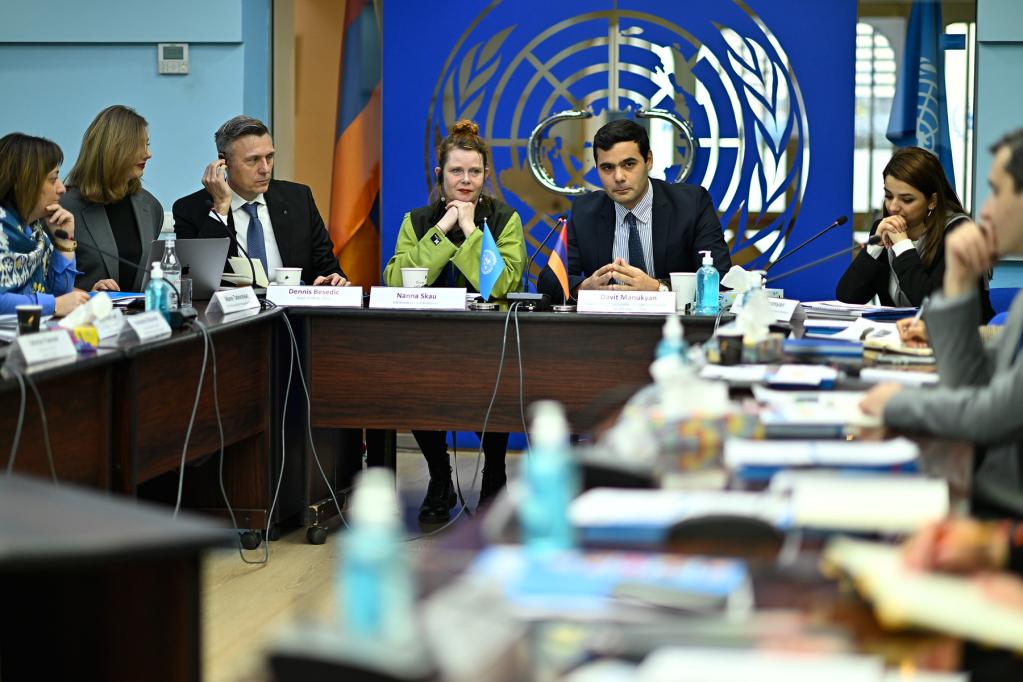
Story
08 February 2024
UNHCR and ECHO visit host communities to get familiarized with the humanitarian activities implemented for the refugee families
Recently, officials with technical expertise from the EU Civil Protection & Humanitarian Aid (ECHO) and UNHCR colleagues made a joint visit to a communal center in Dilijan of Tavush province, hosting refugees from Karabakh, to participate in the legal counseling session and focus group discussion organized for them by the lawyers of UNHCR's partner NGO Mission Armenia.
"Face-to-face meetings as such are very important and serve very useful for us. We can receive explicit and reliable information and answers to our questions, particularly related to legal and social issues, and documentation," Irina and refugees were sharing their reflections.
The counseling session went in a genuine atmosphere of trust and collaboration, allowing refugees to share and discuss individual and common concerns and receive reliable information - much needed to take the next step and make decisions.
"Many things have now been clarified for refugees. They can now focus on their pending plans and the way forward for the future of themselves and their children," said Margarita, the manager of the community center, thanking ECHO and UNHCR for the visit and continuous support.
UNHCR is grateful to ECHO - an invaluable donor and partner in refugee emergencies - for their generous contribution enhancing the joint efforts to ensure legal counseling and aid, case management and social support to refugees, their access to information, hotline service, and referrals.
UNHCR is thankful to the Government of Armenia, host communities and the civil society, Migration and Citizenship Service, the Ministry of Labour and Social Affairs, Human Rights Defender's Office, Chamber of Advocates, and other partners, for their outstanding collaboration with UNHCR in the work for refugees.
UNHCR and donors continue community outreach to refugees in Armenia to learn about their well-being, to talk about the various social and legal issues they face and understand their evolving needs and concerns.
1 of 5
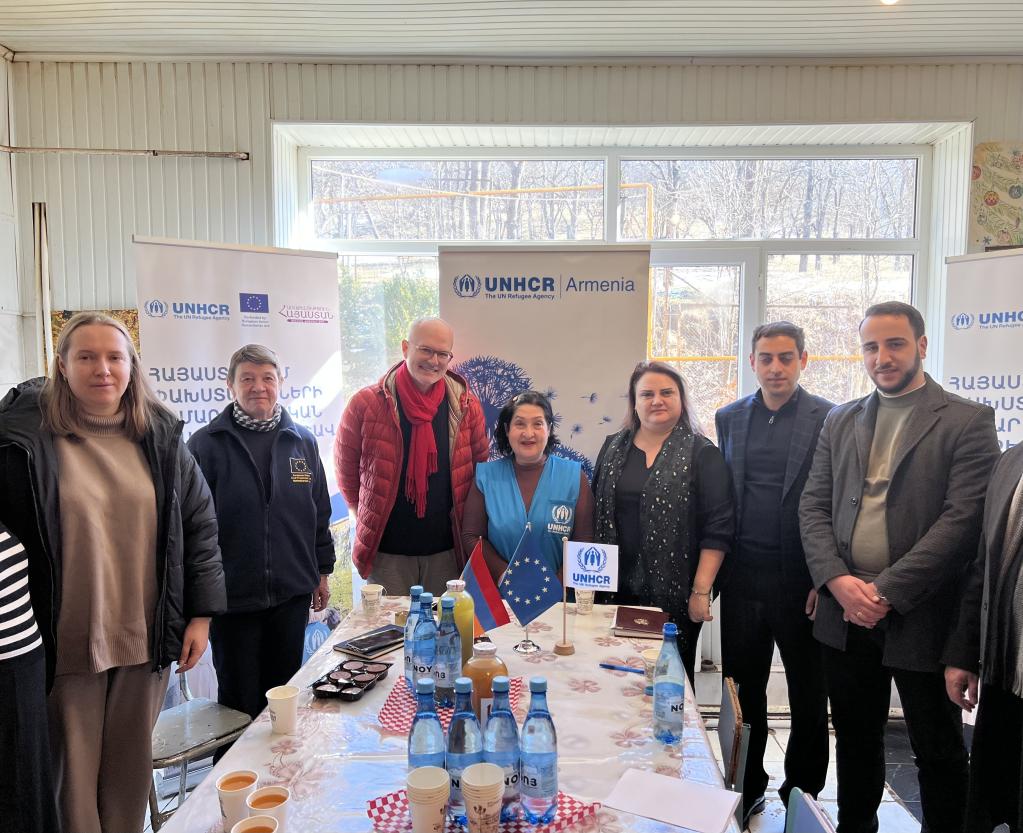
Story
08 April 2024
Technical Training Workshop focusing on SDG 2.1 target was held
The workshop delved into SDG 2.1.1“the Prevalence of Undernourishment” and SDG 2.1.2 “the Prevalence of moderate or severe food insecurity in the population based on the Food Insecurity Experience Scale (FIES). The recent adoption of the 2030 Sustainable Development Goals (SDGs) agenda has been both an opportunity and a challenge to define the national SDG monitoring framework. In this context, Statistical Committee of Armenia (Armstat), asked for a technical support regarding the above SDG 2.1 food security indicators to FAO Statistics Division (ESS)/Food Security and Nutrition Statistics Team.The workshop was conducted by Firas Yassin, Food Security Statistician from FAO/ESS. He has an extensive experience in leading the capacity development activities on both SDGs indicators in most of the countries in FAO - Europe and Central Asia region. The training was also supported by Ms. Sara Zakaryan, Food Security Analyst from the ESS.During the opening remarks of the training SDG monitoring framework and brief introduction of the SDG indicators for which FAO is custodian were introduced. General introduction Household Integrated Living Conditions Survey with a special focus on food consumption modules was done. The actual training involved theoretical background, technical and practical training on the analysis of food consumption and demographic data for the estimation of PoU (SDG 2.1.1). The training also provided theoretical knowledge and hands-on-data training on the use of FIES and the estimation of SDG 2.1.2. In addition to their use of monitoring progress towards SDG 2, both Food Security indicators have the ability to support national policy makers to draw national food security policies and programs. In specific, they can help identifying vulnerable populations and guide and monitor the effects of national food security policies and programmes, identify risk factors for and consequences of food insecurity, and, lastly, support with data-based evidence and information the decision-making and policy implementations.The training was well attended. Participants were from ArmStat, other public institutions, as well as UN agencies. Participants engaged in discussions and practical sessions aimed at enhancing their understanding and capacity to address these critical aspects of sustainable development.
1 of 5
Story
11 March 2024
UNICEF partners with Public TV to launch a dedicated programme on positive parenting and children's health
In a collaborative effort to support families and promote nurturing care and positive parenting practices, UNICEF has teamed up with the Ministry of Health of the Republic of Armenia and Public TV of Armenia to develop a dedicated TV program. This exciting initiative aims to provide valuable insights into child health and parenting techniques, with a focus on empowering parents to navigate the complexities of raising healthy and happy children. Christine Weigand, UNICEF Representative in Armenia, highlighted the importance of parental education in shaping the future of children."Parenting is a profound responsibility that extends beyond meeting basic needs. It lays the foundation for a child's entire life. The knowledge and skills parents possess are crucial in ensuring the optimal development, well-being, and success of their children. Parenting is a journey, and parents also need advice and support as they navigate it," she emphasized.To reach their full potential, children need the five inter-related and indivisible components of nurturing care: good health, adequate nutrition, safety and security, responsive caregiving and opportunities for learning. Parents and caregivers are best placed to provide nurturing care for their children. "The Ministry of Health values and welcomes public awareness initiatives aimed at safeguarding maternal and child health. UNICEF and Public Television have consistently demonstrated a supportive stance towards health-related issues. And this project also aligns with the ongoing efforts of the Ministry of Health, and our collaborative approach holds the potential to profoundly influence public opinion and behavior," noted Lena Nanushyan, the First Deputy Minister of Health. The forthcoming program, scheduled to air this Spring, will cover a range of essential topics related to child development and well-being. With input from health experts and leading psychologists, viewers can expect discussions on crucial topics such as pregnancy, newborn care, breastfeeding, healthy nutrition, child growth and development, mental health, teenage challenges, gadget addiction and more. Each episode will offer practical tips and expert advice aimed at enhancing parenting skills and strengthening family relationships. By promoting a culture of self-care, positive communication, and mental well-being, the program seeks to empower parents to provide nurturing care for their children at every stage of life, from intrauterine life to adolescence. Hovhannes Movsisyan, Executive Director of Public TV, expressed enthusiasm for the partnership, stating, "Signing this memorandum with UNICEF holds significant importance for us. As a public broadcaster, we are committed to producing diverse television content catering to individuals of all ages and interests. I am confident that a dedicated program focusing on children's health, nurturing care, and parent-child relationships will capture the attention of our viewers and spark widespread interest." Investing in parental education is an investment in the future. By equipping parents with the knowledge and resources they need to support their children's growth and development, we can create a more resilient and prosperous society for generations to come. For more information and updates on the program, stay tuned to Public TV and UNICEF Armenia's official channels.
1 of 5
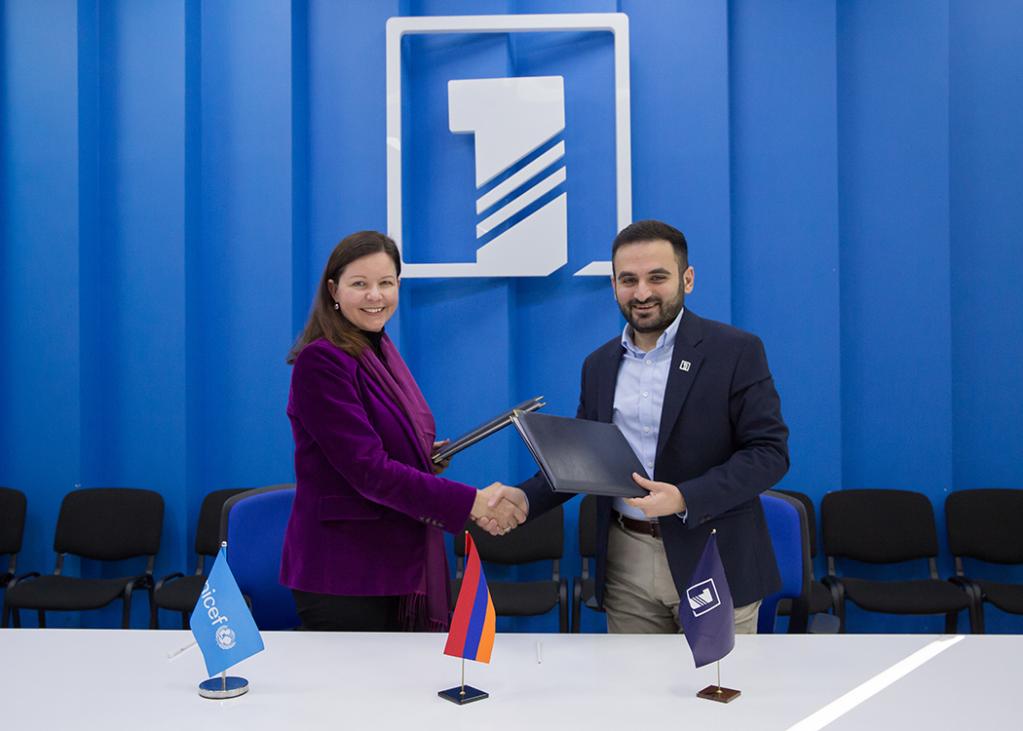
Story
05 March 2024
EU and UNICEF sign an agreement to boost competitiveness of Armenian education system for inclusive quality education
The Delegation of the European Union announced today the EU4Education Reforms programme which, delivered in partnership with UNICEF, will contribute to the effective reform of the education system. Through this three-year programme, UNICEF will support the Ministry of Education, Science, Culture and Sports in its efforts to strengthen the efficiency and accountability of the education management system in the country, as well as to provide children and young people with opportunities to grow their potential and contribute to education reforms, with a particular focus in rural areas.UNICEF will work with the Ministry and other stakeholders to develop relevant policies and programmes in support of the education reform, to strengthen monitoring mechanisms and data systems, and to build the capacity of educators in the design, coordination, implementation and monitoring of the education strategy. This programme will focus on the national education system while also supporting specific initiatives in the Ararat, Kotayk, Gegharkunik and Syunik regions, which have been prioritised in the national education reform. “Through EU4Education Reforms, the European Union will help Armenia develop a well-managed education system tailored to the needs of youth and the labour market. In the long term, we hope to reduce youth unemployment, particularly among marginalized social groups and create a vibrant, well-educated, and well-trained labour force capable of contributing to the growth & green and digital transition of Armenia,” noted Mr Vassilis Maragos, Ambassador of the European Union to Armenia.The programme is designed to contribute to the implementation of the State Programme for Development of Education in the Republic of Armenia 2030, while also supporting Armenia in the achievement of Sustainable Development Goals 4, 5, 10, and 13. By 2027, partners aim to positively influence learning outcomes for students, institute a strengthened institutional framework with quality and financial management, transparency, and monitoring of performance. The intervention will also consider environmental factors in school management, strengthening links between climate change, disaster risk management and education sector actors.Minister of MoESCS, Zhanna Andreasyan, underscored the importance of productive collaboration with UNICEF and the European Union across diverse areas to strengthen the ongoing educational reforms in Armenia. According to the Minister, these reforms stand as a key priority for RoA Government and remain under continuous scrutiny."The state budget earmarks resources for educational reforms and their execution, with a significant increase in allocation. However, the financial backing from the European Union complements these efforts, fostering the successful implementation of our initiatives," stated Zhanna Andreasyan.“Supporting the well-functioning of the education system in Armenia has been a long-standing priority for the European Union. Access to quality education is at the heart of a resilient and prosperous society and is especially important in rural areas. Together with the Ministry of Education, Science, Culture and Sports and UNICEF, this programme will be crucial to continue driving forward the new national education strategy by also supporting teachers and students in taking leadership and contributing to the education reforms,” highlighted Adrienn Király, Director for Neighbourhood East and Institution Building. "Central to our approach is the prioritization of data-driven decision-making, policy advocacy, and meaningful youth engagement. In collaboration with the EU, our shared objective extends beyond enhancing educational quality; it is about nurturing a generation of empowered change-makers,” emphasized UNICEF Representative in Armenia, Christine Weigand. “UNICEF is committed to support Armenia’s efforts to modernise its education system to provide all children and youth with inclusive quality education.”
1 of 5
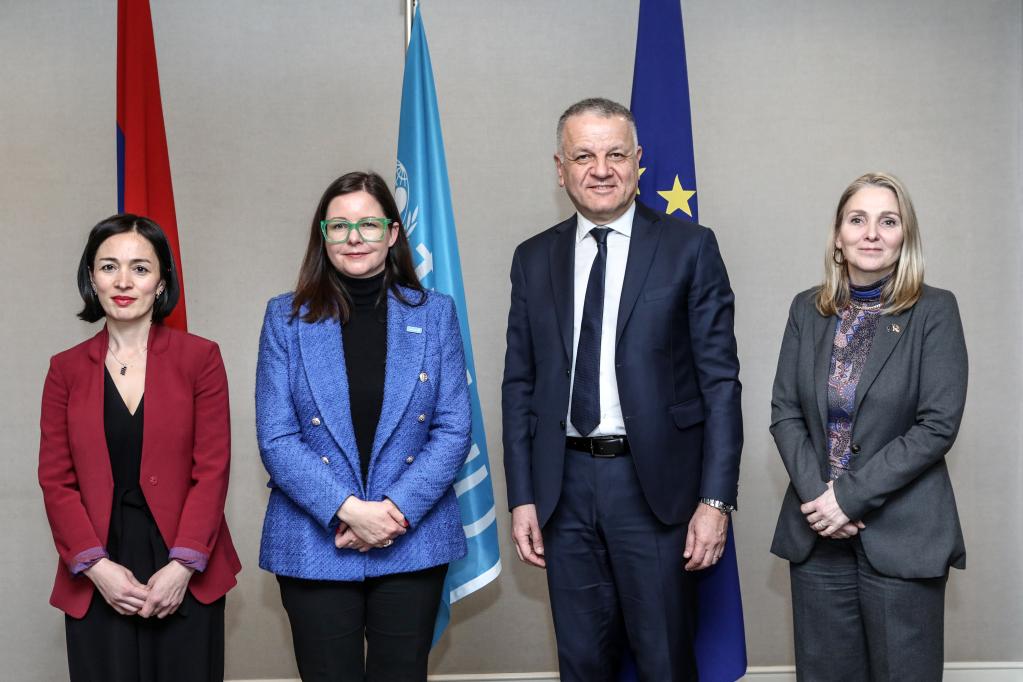
Story
21 February 2024
UN Armenia's Victory at My Forest Armenia’s Nature Quiz Night
Recently our partner organization, My Forest Armenia NGO, hosted the Nature Quiz Night to contribute knowledge and environmental advocacy. The event was full of excitement as 12 teams of 96 participants gathered to test their knowledge of the environment, climate, nature and forests.Among the participants, the UN Armenia team stood out for its dedication to sustainability, climate action and unwavering commitment to the environmental conservation. On behalf of UN Armenia, 960 trees were planted as a reward for the achievement. "In addition to being a great success, we were able to collaborate and share knowledge with each other, demonstrating our commitment to combat climate change and further improve environmental management," noted Team UN member, Marianna Kocharyan, UNDP Programme Associate. “It was a great opportunity to help a cause, and at the same time to demonstrate what real UN teamwork should look like, having so much fun in the process,” highlights Mher Manukyan, UNFPA Communications Associate. “For me the Nature Quiz Night was an amazing experience of harmonious collaboration in a team with enjoyment of a process and summit feeling of exhilaration and pride for the “green” victory!”, notes Ms. Naira Harutyunyan, Planning, Monitoring, Evaluation and Reporting Expert at FAO Armenia.Over the past few years, #TeamUN has been actively involved in nature-friendly projects, including the ambitious initiative to plant 18,000 trees in the UN Forest in Lori. Each tree planted symbolized a commitment to a greener, more sustainable future for Armenia.This victory achieved by UN Armenia serves as another milestone in ensuring the protection of the environment and community development in Armenia.
1 of 5
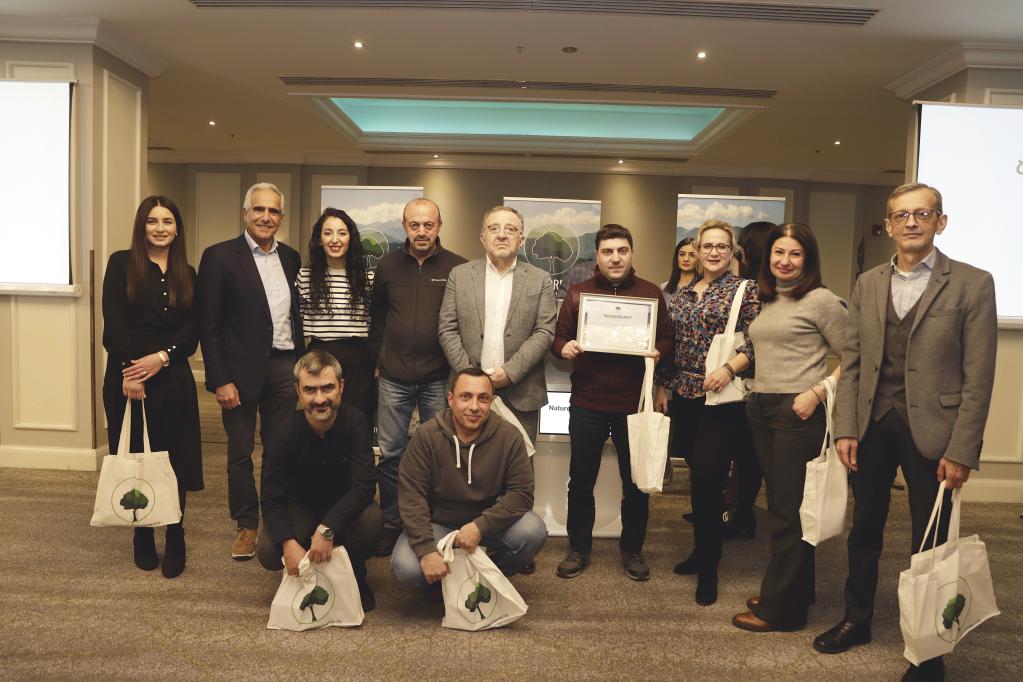
Story
06 February 2024
2nd Meeting of Steering Committee on EU funded and UNIDO implemented Project “Support to QI system in Armenia”
Project Steering Committee 2nd meeting for the EU/UNIDO "Support to Quality Infrastructure in Armenia" project was conveyed in Yerevan on February 1st. The event highlighted major achievements and efforts of key stakeholders collaborating to enhance Armenia's quality infrastructure.
Attended by high-profile representatives, the meeting provided a platform to deliberate on the progress report of the project, covering the period from July 2023 to December 2023. Among the attendees were officials from Armenian Government, MoE Deputy Minister, colleagues from EUD to Armenia and UNIDO HQ. Representatives from NBSM, ARMNAB, Market Surveillance Inspection Body, the Union of Manufacturers and Businessmen and Chamber of Commerce of Armenia were also at the meeting․
Deputy Minister at MoE, Narek Teryan, who chaired the meeting, said in his opening remarks:
“The Government of Armenia is committed to collaborating with all stakeholders to develop a sustainable and globally recognized metrology which is the foundation of a modern quality infrastructure system. This project not only focuses on enhancing technical capacity through training and workshops but also aims to enhance the legal and institutional capacity for long-term sustainability and advancement in metrology. I am quite optimistic about the positive impact it will have on various industries and society.”
Frank Hess, Head of Cooperation at the EU Delegation in Armenia noted. " This project is important within the Comprehensive and Enhanced Partnership Agreement, where together with the Government we look at what should be done in various sectors of the economy. An important aspect of this involves the adoption and implementation of the EU rules and regulations. This meeting underscores the importance of specific actions and highlights the commitment and responsibility of the government to facilitate a dialogue with the private sector.”
Cong Wu, Project Manager at UNIDO, thanked the meeting participants and the key stakeholders for their close engagement and firm commitment to the project.
“No need to mention how important a modern quality infrastructure or metrology system is to sustainable development and trade. International recognition in the QI or metrology context is also a driving force for sustainability. Integration into international metrology system could help with knowledge sharing, technology transfer and innovation. In this regard, the project supported the Government of Armenia to make informed decision,” stressed Cong Wu.
During the meeting, a comprehensive review of the project progress covering the period from July 2023 to December 2023 was presented, emphasizing key activities. Highlights included the cost/benefit analysis of BIPM and OIML membership with recommendations provided to 16 national stakeholders, the completion of demand survey/assessment of all QI components (standardization, conformity assessment, accreditation, and market surveillance), trainings and collaboration of NBSM staff with international and regional organizations in the field of metrology, progress in the process of procurement and delivery of industrial metrology equipment, review of NBSM's governance structure by an international expert, process of validation of amendments to Metrology Law with national stakeholders.
The reporting period also included UNIDO’s support to the Ministry of Economy in organizing the celebration of World Quality Day 2023. This initiative contributed to raising awareness among public and private stakeholders about the National Quality Infrastructure.
The Steering Committee meeting concluded with approval of the progress report, and the work plan for January-June 2024, outlining the project's upcoming activities and key deliverables during the coming 6 months.
To note, “Support to Quality Infrastructure in Armenia," funded by the EU and implemented by UNIDO, aims to strengthen the capacity of the National Institute of Standards and Metrology (NBSM) to provide sustainable and internationally recognized metrology services. This initiative aligns with Armenia's commitment to implementing the CEPA Agreement with the EU, enhancing trade competitiveness, and maximizing the associated benefits.
1 of 5
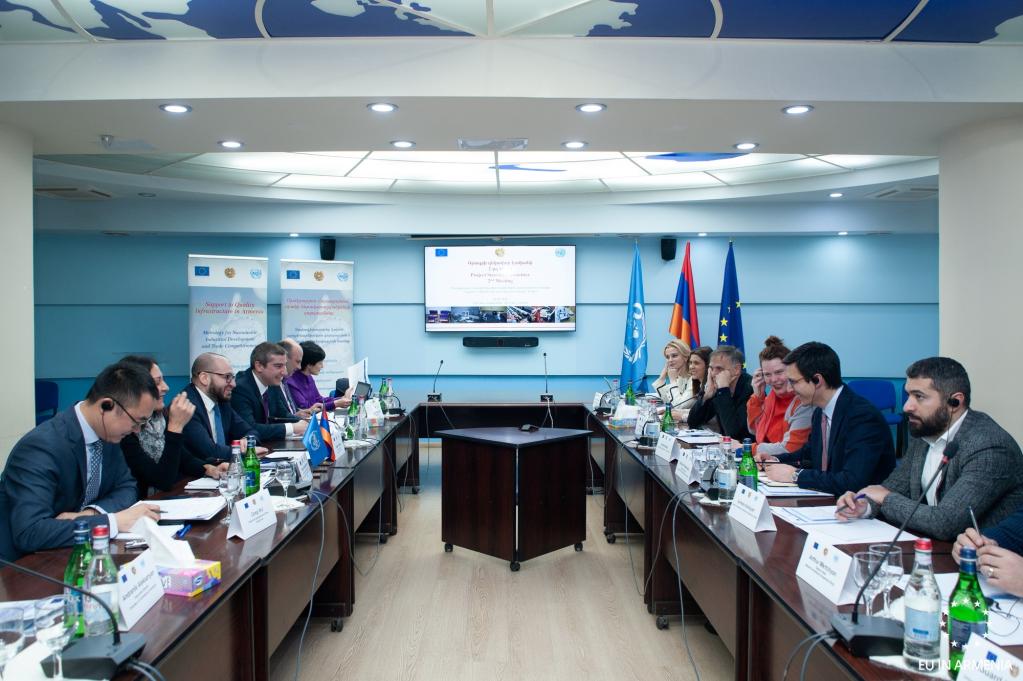
Press Release
25 March 2024
Call from 100+ Pantheon of Global Leaders for Urgent Agreement on Governments to Reach Ambitious & Equitable International Deal to Prepare for and Prevent Future Pandemics
Former UN General Secretary Ban-ki Moon, New Zealand’s former Prime Minister Helen Cark, former UK Prime Ministers Gordon Brown and Tony Blair, former Malawi President Joyce Banda, former Peru President Franciso Sagasti, and 3 former Presidents of the UN General Assembly are amongst 100+ global leaders, from all continents and fields of politics, economics and health management who today issued a joint open letter urging accelerated progress in current negotiations to reach the world’s first ever multi-lateral agreement on pandemic preparedness and prevention. “A pandemic accord is critical to safeguard our collective future. Only a strong global pact on pandemics can protect future generations from a repeat of the COVID-19 crisis, which led to millions of deaths and caused widespread social and economic devastation, owing not least to insufficient international collaboration,” the leaders write in their joint letter.In the throes of the Covid-19 disaster which, officially, claimed 7 million lives and wiped $2 trillion from the world economy, inter-governmental negotiations to reach international agreement on future pandemic non-proliferation were begun in December 2021 between 194 of the world’s 196 nations. Nations set themselves the deadline of May 2024 by which they should reach agreement on what would be the world’s first ever Pandemic Accord.The ninth round of Pandemic Accord negotiations are underway this week and next. Signatories of today’s open letter hope their combined influence will encourage all 194 nations to maintain the courage of their Covid-years conviction and make their own collective ambition of an international pandemic protocol a reality by the intended May deadline to enable ratification by the World Health Assembly at its May 2024 Annual General Assembly.And they urge negotiators “to redouble their efforts” to meet the imminent deadline and not let their efforts be blown off course by malicious misinformation campaigning against the WHO, the international organisation which would be tasked with implementing the new health accord.Taking a swipe at those who wrongly believe national sovereignty may be undermined by this major international step forward for public health the signatories say “there is no time to waste” and they call on the leaders of the 194 nations taking part in the current negotiations to “redouble their efforts to complete the accord by the May deadline.”The letter, hosted on the website of The Office of Gordon and Sarah Brown states, “Countries are doing this not because of some dictum from the WHO – like the negotiations, participation in any instrument would be entirely voluntary – but because they need what the accord can and must offer. In fact, a pandemic accord would deliver vast and universally shared benefits, including greater capacity to detect new and dangerous pathogens, access to information about pathogens detected elsewhere in the world, and timely and equitable delivery of tests, treatments, vaccines, and other lifesaving tools.“As countries enter what should be the final stages of the negotiations, governments must work to refute and debunk false claims about the accord. At the same time, negotiators must ensure that the agreement lives up to its promise to prevent and mitigate pandemic-related risks. This requires, for example, provisions aimed at ensuring that when another pandemic threat does arise, all relevant responses – from reporting the identification of risky pathogens to delivering tools like tests and vaccines on an equitable basis – are implemented quickly and effectively. As the COVID-19 pandemic showed, collaboration between the public and private sectors focused on advancing the public good is also essential.”“A new pandemic threat will emerge; there is no excuse not to be ready for it. It is thus imperative to build an effective, multisectoral, and multilateral approach to pandemic prevention, preparedness, and response. Given the unpredictable nature of public-health risks, a global strategy must embody a spirit of openness and inclusiveness. There is no time to waste, which is why we are calling on all national leaders to redouble their efforts to complete the accord by the May deadline.”“Beyond protecting countless lives and livelihoods, the timely delivery of a global pandemic accord would send a powerful message: even in our fractured and fragmented world, international cooperation can still deliver global solutions to global problems.”
1 of 5
Press Release
27 November 2023
United States supports WFP’s assistance to refugees in Armenia
With the generous support of the U.S. Government, WFP plans to reach approximately 20,500 people who have fled hostilities and are now living in the Ararat, Kotayk, and Gegharkunik regions. These regions host one of the highest numbers of refugees outside of Yerevan.
“We are grateful to the U.S. Government for the support during this emergency. This donation supports our efforts to ensure the well-being of thousands of refugees residing in Armenia, providing them daily access to food,” says WFP Representative and Country Director in Armenia Nanna Skau.
As part of the crisis response, WFP will provide food parcels to assist 20,000 refugees in covering their food needs over three months, contributing to improved livelihoods. Additionally, WFP will provide three hot meals each day for 500 refugees for three months totalling 135,000 hot meals. WFP will help distribute hot meals through mobile kitchens, school canteens, and arrangements for elderly residents.
“While providing urgent assistance for the upcoming winter, it's important to plan the next phase of support. This involves moving beyond immediate relief to strategies that stabilize lives and promote social cohesion,” added Saku.
In addition to immediate food assistance, WFP, with this contribution, will conduct a Food Security and Vulnerability Assessment to support evidence-based decision-making and its overall response planning. The comprehensive analysis will cover all regions, with a particular focus on areas where refugees have settled.
WFP is supporting the Government of Armenia through a range of initiatives, including emergency food assistance and cash-based transfers, nutritional support, and resilience-building.
1 of 5
Press Release
01 December 2023
Announcement. “SUITCASE 2023” annual journalism award
This year, materials published during the period of 28 November 2022 to 4 December 2023 can be submitted for the contest.
Eligible materials include:
Printed / online articles in the press / blogs / news websites.
Online journalistic videos
Online radio stories, podcasts
Online / printed photo galleries with human-interest story pictures
The materials can cover one or more of the following groups of people and/or topics:
Asylum seekers and issues faced by them.
Refugees, other forcibly displaced people and issues faced by them.
Migrants and issues faced by them.
Stateless persons and their situation.
Returnees and issues faced by them, reintegration.
Communities hosting refugees; challenges faced by hosts.
Situation of forcibly displaced persons.
Solutions to issues faced by refugees and host communities.
Support from international community; international protection of refugees.
Refugees’ access to jobs, education, and services.
Contribution of refugees to host communities.
Contribution of host communities to refugee protection and assistance.
Migration processes.
The contest is open to journalists and media actors working in television, radio, print media, electronic media, independent bloggers, photographers, and multimedia professionals.
NB: Please note that media materials developed in the frame of any grant project, on a fee-for-service basis, will be considered ineligible.
The submitted materials will be evaluated by the Jury, and the winners of the 1st, 2nd and 3rd prizes will be announced at the closing ceremony in December 2023.
The materials must be submitted by 23:59, 4 December 2023, to ghalamka@unhcr.org, along with the following mandatory information:
the author’s (authors’) name(s) and surname(s), phone number, e-mail address.
date of publication, link to the source, additional justification of the authorship (if the applicant deems necessary), name of the media outlet.
In case of questions please contact us at 095 005 313 (Aramazd Ghalamkaryan, UNHCR), 091 520 254 (Nelly Davtyan, MCS) or 091 506 884 (Shushanik Nersesyan, PIN).
Suitcase 2023 Journalism Award is aimed at motivating high-quality thematic media coverage. Since 2010, by encouraging the production of professional and impressive media content on the processes relating to refugees, asylum seekers, stateless persons, returnees, and migrants in Armenia, we aim to inspire journalists to apply more comprehensive, accurate and impartial approaches in media work with displaced persons and migrants. Suitcase 2023 is funded by the European Union, contracted by ICMPD through the Migration Partnership Facility (MPF), by UNHCR Armenia, IOM and UN Armenia.
1 of 5
Press Release
30 November 2023
Climate change is an urgent threat to pregnant women and children
According to the document– Protecting maternal, newborn and child health from the impacts of climate change – the effects of climate events on maternal and child health have been neglected, underreported and underestimated. It highlights that very few countries’ climate change response plans mention maternal or child health, describing this as “a glaring omission and emblematic of the inadequate attention to the needs of women, newborns, and children in the climate change discourse”.
“Climate change poses an existential threat to all of us, but pregnant women, babies and children face some of the gravest consequences of all,” said Bruce Aylward, Assistant Director General for Universal Health Coverage, Life Course at the World Health Organization (WHO). “Children’s futures need to be consciously protected, which means taking climate action now for the sake of their health and survival, while ensuring their unique needs are recognized in the climate response.”
The year 2023 has been marked by a series of devastating climate disasters. Wildfires, floods, heatwaves and droughts are displacing people, killing crops and livestock, and worsening air pollution. An over-heating world is increasing the spread of deadly diseases like cholera, malaria and dengue, with dire consequences for pregnant women and children for whom these infections can be especially severe.
Research shows that harm can begin even in the womb, leading to pregnancy-related complications, preterm birth, low birthweight and stillbirth. For children, consequences can last a lifetime, affecting the development of their bodies and brains as they grow.
“Action on climate change often ignores that children’s bodies and minds are uniquely vulnerable to pollution, deadly diseases and extreme weather,” said UNICEF Deputy Executive Director for Programmes, Omar Abdi. “We do this at our peril. The climate crisis is jeopardizing every child’s fundamental right to health and well-being. It is our collective responsibility to listen and put children at the centre of urgent climate action, beginning at COP28. This is the moment to finally put children on the climate change agenda.”
The Call to Action highlights seven urgent actions to address these mounting risks. These include sustained reductions in greenhouse gas emissions and action on climate finance, alongside the specific inclusion of the needs of pregnant women, babies and children within climate and disaster-related policies. The agencies also call for more research to better understand the impacts of climate change on maternal and child health.
“To find climate solutions that acknowledge the distinct health needs and vulnerabilities of women and girls we must start by asking the right questions,” said Diene Keita, the Deputy Executive Director for Programmes at UNFPA, the United Nations sexual and reproductive health agency. “Global climate solutions must support - not sacrifice - gender equality.”
The Call to Action was released by WHO, UNICEF and UNFPA at an online launch event, alongside an advocacy brief by the Partnership for Maternal, Newborn and Child Health (PMNCH).
"Climate change is the biggest intergenerational injustice of our times. Safeguarding the health and rights of women, children, and adolescents is non-negotiable in the face of the climate crisis’’, said Rt Hon Helen Clark, PMNCH Board Chair and former Prime Minister of New Zealand. ‘’Every stakeholder, from governments to the private sector and health care professionals, holds a critical role in championing policies and actions that protect the most vulnerable. The urgency to integrate women, children and adolescent health needs into climate responses is not just a moral imperative, but an effective strategy with long term benefits for resilient and healthy societies’’.
During the COP28 meetings, delegates will mark the first ever Day of Health, noting the intractable linkages between the health of people and the planet.
1 of 5
Press Release
24 October 2023
Majority of refugee children in Armenia enrolled in school one month after fleeing their homes
GENEVA/YEREVAN, Armenia, 24 October 2023 – Two-thirds of refugee children in Armenia are enrolled in national school systems, one month after an escalation of hostilities led to more than 21,000 school-age children fleeing their homes. Efforts must now focus on increasing access for the remaining 1 in 3 children currently not attending school, UNICEF said today.
“Schools are more than places of learning. This is especially true in times of displacement, unrest and uncertainty. Access to education provides refugee children with the structure and support needed to help them overcome their experiences. Schools also provide children with nutrition and mental health services, socialisation and much more to support their health and well-being,” said Christine Weigand, UNICEF Armenia Representative.
“Investment must be made in increasing access to schooling for the 1 in 3 refugee children not enrolled in education and ensuring schools are inclusive for all children.”
Children who arrived in Armenia have not had continuous access to quality education in recent years, making an inclusive school system that provides catch-up classes and tailored support critical.
UNICEF is on the ground working with the Government of Armenia and other partners to help refugee children access the care and support they need. Together with the Ministry of Education, Science, Culture and Sport, UNICEF is undertaking an assessment to identify needs and gaps in the current education system. This includes identifying areas that need bolstering and expansion to support effective inclusion of all refugee children.
UNICEF is providing educational kits including schools-in-a-box and early childhood development kits. In addition, UNICEF and its partners are distributing a first batch of 1,000 schoolbags with stationary for children. Procurement of additional 2,000 schoolbags to address the additional emerging needs is ongoing. UNICEF is also gearing up to expand learning spaces in host schools and preschools across the country.
So far UNICEF has provided mental health and psychosocial support, and health and nutrition support for up to 10,000 refugee children and their caregivers. UNICEF and partners have also provided more than 1,000 children and caregivers with child protection case management support, and over 3,000 with psychological first aid.
UNICEF is appealing for US $ 12.6 million to provide critical services including education, health, child protection, nutrition and water, sanitation and hygiene in the first six months.
1 of 5
Latest Resources
1 / 11
Resources
22 December 2023
1 / 11

